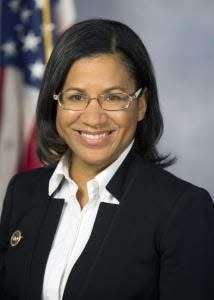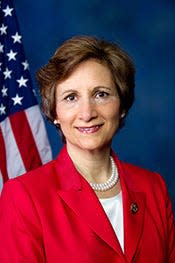Pa. school districts can lock out homeless students. A new bill would change that.
This article was originally published by the Center for Public Integrity, a nonprofit investigative news organization based in Washington, D.C.
Months after a Center for Public Integrity investigation showed that Pennsylvania school districts locked children out of class while investigating their families’ claims of homelessness, a bill winding through the state legislature would make the practice illegal.
In November, the Pennsylvania House of Representatives unanimously passed legislation that would reverse a state law allowing schools to keep out any students, including homeless children, during residency disputes.
The current statute conflicts with a federal law designed to protect the educational rights of homeless students. The McKinney-Vento Homeless Assistance Act requires school districts to immediately enroll students experiencing housing insecurity until residency disputes, including any appeals, are resolved.
That does not always happen, though.
While federal law urges schools to support homeless students, some districts in Pennsylvania and other states, such as Maryland and Missouri, suspect residency fraud and launch investigations when families say they don’t have a permanent home, investigations by Public Integrity and reporting partners The Midwest Newsroom and St. Louis Public Radio revealed.
More: Helping Erie's homeless will take multilayered plans as unsheltered population spikes
Several Pennsylvania families caught in disputes alleged that school districts kept their children out of class for weeks or months.
“Local municipalities have concerns about limited resources in their school districts and unfortunately begin thinking the worst of families. And that is unfortunate people still have that mindset,” Democratic state Rep. Donna Bullock, the state House’s Children & Youth Committee chairwoman, said in an interview with Public Integrity.

The cases often involve students who say they are “doubled up” — the federal term for sharing a home with friends or relatives because of economic hardship or loss of housing. Those children are considered homeless under McKinney-Vento, which mandates that schools support them.
Public Integrity’s review of dispute records and internal emails from the Pennsylvania Department of Education suggests the problem is acute in suburban Philadelphia schools, where many conflicts occurred.
“We hear a lot about families that are doubled up with relatives,” said Bullock, who represents part of Philadelphia County. “Oftentimes, they’re accused of falsely using addresses to enroll in better school districts. This would provide some protections to those students.”
The practice of barring homeless students from school has also drawn the attention of members of Congress.
“No child should be denied access to education because they are experiencing homelessness or poverty,” U.S. Sen. Bob Casey of Pennsylvania, a Democrat and chairman of the Subcommittee on Children and Families, said in a statement to Public Integrity. “In addition to funding youth homelessness prevention and support, it’s critical we give all American children equal opportunities to reach their fullest potential.”
State Rep. Jeanne McNeill, the bill’s sponsor, introduced the legislation after a district in the southeastern Pennsylvania area she represents barred a student from attending school and receiving special education services during a residency dispute.
“Too many students sit out for far too long,” McNeill, a Democrat, said in an interview. “These students can’t be sitting in limbo … because school districts are fighting over where he or she belongs.”
McNeill introduced the residency dispute bill twice before but failed to gain enough support while Republican lawmakers controlled the state House. Democrats are now the majority party.
The bill’s prospects for becoming law in Pennsylvania remain unclear. Republican state Sen. David Argall, the state Senate Education Committee chairman, will decide whether the bill comes up for a vote. Argall’s staff said he was not available for an interview.
“Committee staff has received the bill and is now reviewing it for potential future consideration,” said Cynthia Urban, executive director of the state Senate Education Committee, in a statement provided to Public Integrity.
The Pennsylvania-based Education Law Center, which represents families in residency disputes, advocated for the bill during a recent state hearing on student homelessness. Families, especially those experiencing housing instability, are often unaware they have a right to challenge residency investigations, said Paige Joki, an attorney with the law center.
Sometimes, school districts don’t know they are violating federal law when they bar homeless students from school during residency disputes. On other occasions, they may blatantly disregard the law, Joki said.
“Unfortunately,” she added, “it seems to be a mix of both.”
More: Using a different address for school placement can be a crime. Is school choice a solution?
Undercounting and underfunding homeless students
The bill would also require a school district’s homeless liaison to inform parents and guardians about student rights and eligibility for support services under the McKinney-Vento Act before taking steps to disenroll a child. That could help reduce the under-identification of homeless students in the state, part of a nationwide problem.
A 2022 Public Integrity investigation estimated the number of homeless students going uncounted in pre-pandemic school years at about 300,000 annually.
Among those uncounted children, an estimated 13,000 attend schools in Pennsylvania, the Public Integrity analysis found.
U.S. Rep. Glenn “GT” Thompson, a Republican from Pennsylvania who sits on the Subcommittee on Early Childhood, Elementary and Secondary Education, did not respond to a request for comment.
U.S. Rep. Suzanne Bonamici, of Oregon, the Congressional Caucus on Homelessness co-chair, said Public Integrity’s reporting “makes clear that the current support system through the McKinney-Vento Act is leaving too many gaps.”

Bonamici, a Democrat, is also the ranking member of the U.S. House Subcommittee on Early Childhood, Elementary and Secondary Education. An investigation from InvestigateWest supported by Public Integrity’s analysis suggested that roughly 20% of districts in her home state are under-identifying the number of homeless students attending their schools.
Failing to identify students experiencing homelessness and housing insecurity is not just an administrative matter. It can have real-life consequences.
It may be the difference between receiving free transportation to school and being chronically absent and potentially dropping out. Between access to free meals and going hungry. Between receiving referrals to agencies that provide housing or medical care and scrambling to find support alone.
“Homelessness is a pervasive challenge in Oregon and across the country,” Bonamici said in a statement provided to Public Integrity. “Federal programs have not kept up with the number of homeless youth, and more resources are needed.”
Public Integrity’s investigation revealed that federal funding totaled about $60 per homeless student nationwide before the pandemic. In December 2022, Congress increased funding for homeless students by 13% after a years-long campaign by advocacy groups and Public Integrity's reporting the previous month.
In Washington state this year, lawmakers more than doubled the funding for a program that helps connect homeless students and their families to housing and services. That move came after stories by reporting partner The Seattle Times showed the state received an average of $29 in federal funding per student despite having one of the nation’s highest homeless student populations.
More than 100 U.S. House members are calling for more significant investments in programs serving people experiencing homelessness, including a funding increase for the Education for Homeless Children and Youth Program under the McKinney-Vento Act. Bonamici is among that congressional group.
“I remain hopeful that we can pass a meaningful investment in federal programs that address youth homelessness,” she said in her statement. “Students cannot thrive if they don’t have their basic needs met.”
This article first appeared on Center for Public Integrity and is republished here under a Creative a Creative Commons license.
This article originally appeared on Erie Times-News: PA could update law that allows schools to lock out homeless students
